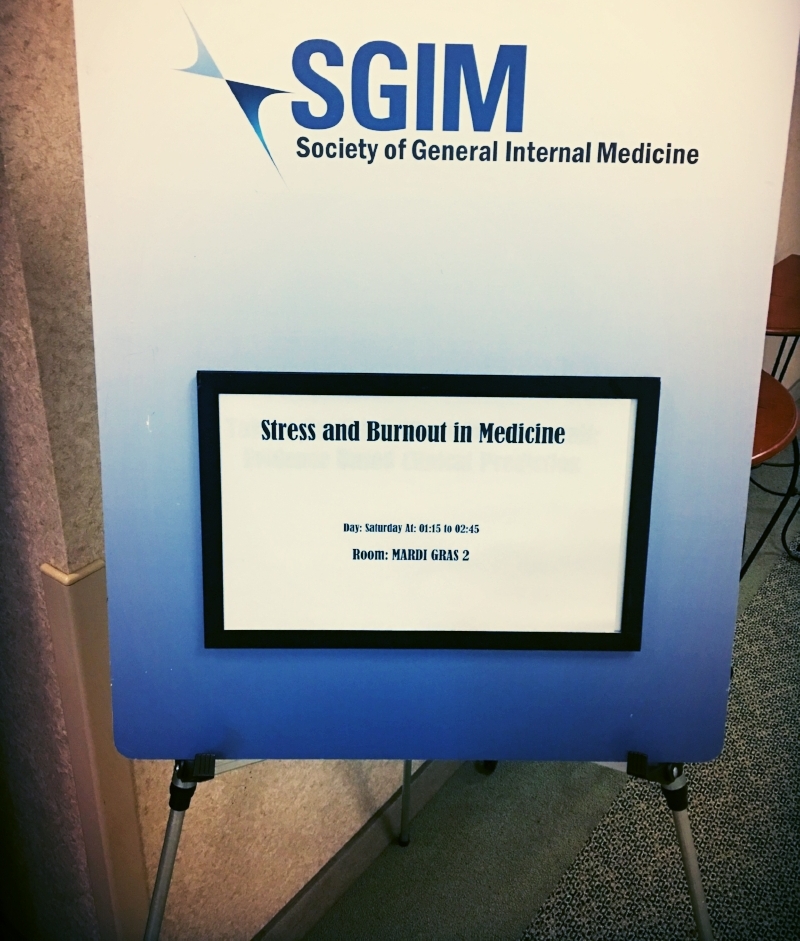
Blog

There is no quick fix
Last month I spoke at a conference about burnout in medicine. The idea is, if the doctors are less burned out, they will be better doctors, and then the patients will be more satisfied with the care they receive. And everyone will be happier. Win-win-win.
I had coffee with my former boss, who is a visionary leader, before I gave my talk. He asked me what I thought we should do about burnout. I suggested a Vedic meditation program for a group of physicians at the hospital, and he replied along the lines of, “yes, but then they have to become meditators. How else can we fix burnout?”

The *real* story of how I learned to meditate
This High Holiday season marks my 6th anniversary of learning Vedic meditation. It started innocently enough… It was Yom Kippur in Chicago, and a Friday night. I hadn’t been to synagogue in years. I was probably getting over yet another dramatic breakup, and had also been experiencing months of massive, soul-destroying work burnout, so I decided my friend and I should celebrate… by going to a bar. I knew exactly which bar we should go to (The Southern), and I (earmuffs, mom and dad) wanted to sit at the bar and flirt with dudes. Not my usual M.O., but somehow I knew that was definitely the plan.

Meditate-Anon (Part 2)- for the non-meditators!
Vedic meditation (or any physical or spiritual practice), while life-changing for meditators, can sometimes be a drag for the partners (and family members, friends, and colleagues) of meditators. Several weeks ago, I posted part 1 of this series- how Vedic meditators can make it easier for their family members, colleagues and friends, to be supportive of their practice. If you missed it, or want a refresher, you can read it here!

Pain vs. Suffering
Pain vs suffering. What’s the difference? Pain is inevitable. Pain can even be helpful. Our nerves provide sensations, so that we may avoid injury. Suffering occurs when we give our pain a personality, a cause and effect, a narrative. If pain is the physical sensation we feel, suffering is the story we tell ourselves about that pain (and what the pain says about us).

9 Reasons Why Doctors CAN, SHOULD, (and often DON’T) Meditate
Knowing what I know about practicing medicine, and knowing what I know about meditation and its benefits, I often ask myself, “why don’t more doctors, and other healthcare professionals, learn to meditate?” Here are 9 reasons why doctors CAN, SHOULD, (and often DON’T), meditate:

Because... John Clease
I’ve always been one of those people who beats themselves up about every little cringe-worthy thing I have said, or done. I’d cringe for years. One example that comes to mind is that, at the age of 12, I told a friend’s dad he looked like the actor John Clease (I had been watching a VHS recording of ‘A Fish Called Wanda’ nonstop). I could tell he wasn’t at all pleased by the comparison, and I felt foolish and ashamed of my comment for decades.

Moving on, Vedic style.
It happens. We all have breakups. Even the experts struggle with their own personal relationships. Instead of asking about relationship advice, what we should all be asking is, how do we deal with breakups in a healthy way? How do we move on, Vedic style?

My new best friend: a printer.
I’d like to introduce you to my new best friend.
It’s an Epson WF 3640 printer.
